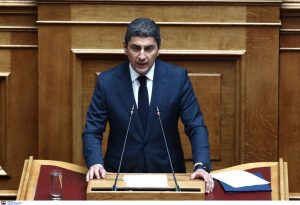The current competitive tendering processes for waste management projects in Greece have gathered a budget of 1.3 billion euros, covering 15 projects.
These include what’s billed as a central circular economy park in the greater Athens-Piraeus area, as well as waste processing and sewage treatment units in various locations like Thessaloniki, Andros, Santorini, Leros, Naxos, Rhodes, Tinos, Kavala, Larissa, Volos, Patras, and Corfu.
These projects are crucial for efficient waste management, recovering recyclable materials and biowaste while significantly reducing landfill-bound waste and untreated disposal.
The recent amendment to the National Waste Management Plan involves transforming Waste Processing and Biological Waste Treatment Units (MEP – MEB) into Recycling Recovery Units (RRUs) and upgrading twelve existing MEPs.
The Environmental Management Actions (EMAs) funded by European Structural and Investment Funds (ESIF) 2014-2020 under the Regional Waste Management Plans (RWMPs) 2016-2020 incorporate a “flexibility clause” in tender notices for adaptability, allowing technological modifications if required and completion under EMAs with resources from the 2021-2027 programming period.
Units planned under revised RWMPs will be designated as EMAs from inception, funded by the ‘Environment and Climate Change’ Program for 2021-2027, with co-financing contingent on separately collected stream quantities directed to the EMAs.
The ‘Environment and Climate Change’ Program (LIFE) for 2021-2027 is an environmental initiative, designed to steer Europe towards a greener future. With significant EU funding, LIFE sets out to spearhead the transition to a sustainable, circular economy while combating climate change and preserving biodiversity.
The program backs demonstration, best practices, coordination, capacity building, and governance projects. This encompasses major Strategic Integrated and Nature projects aiding environmental and climate plan execution, alongside regional or national strategies.






